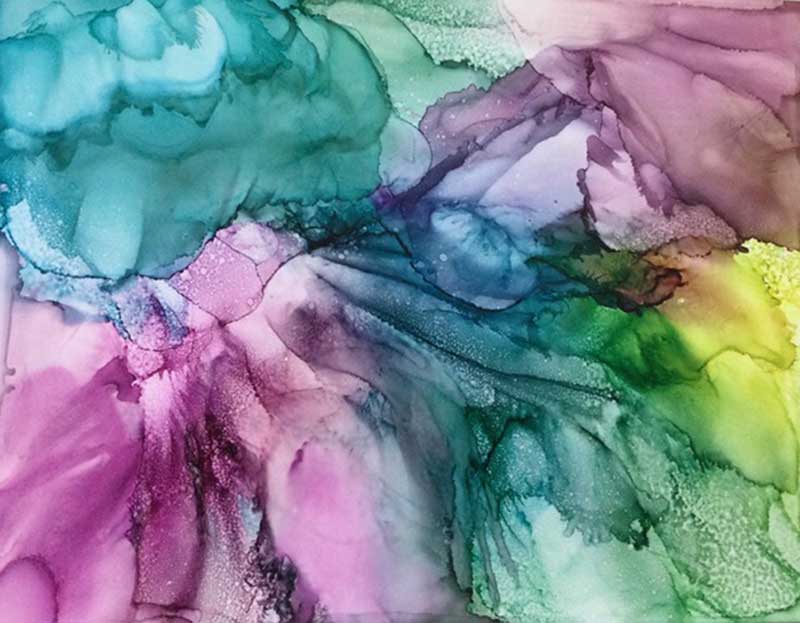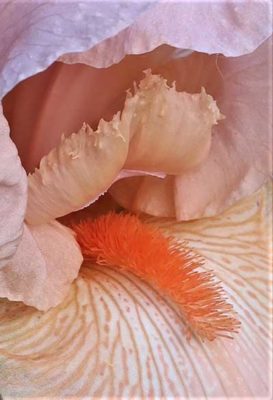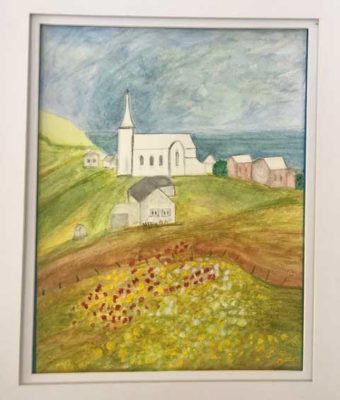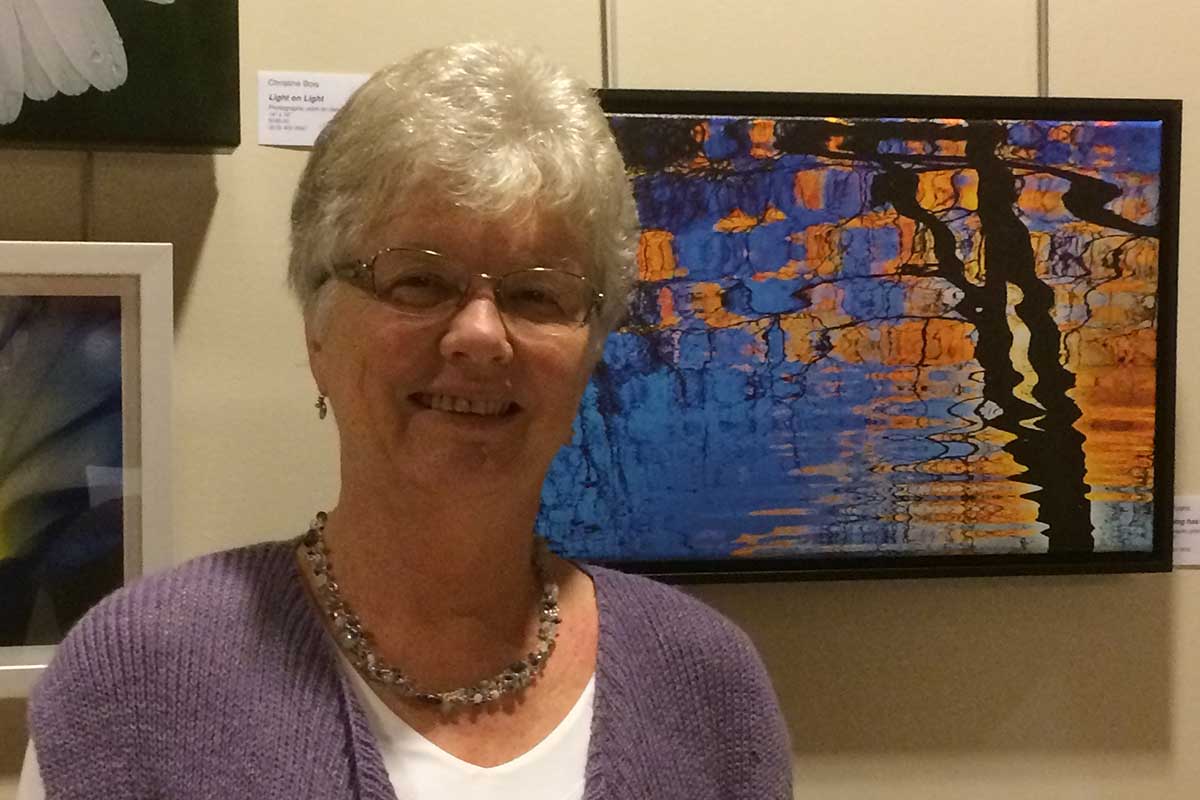Sue Evans, co-ordinator of the Centre for Creative Living in Almonte, Ont., describes the Centre as “an interesting experiment that has taken hold.”
There have been some interruptions and accommodations during the pandemic, but five years after it took shape, the CFCL is living up to its name and mission offering “contemplative practices to nurture body, mind and spirit and to increase the natural ability in everyone to live and work more creatively, compassionately and joyfully. ”People come to explore six programs: drawing, painting and mixed media; contemplative photography; creative writing; Feldenkrais, meditation and yoga.
The Centre (CFCL) is now a permanent program and integral part of St. Paul’s Anglican Church, but it didn’t start out that way. It wasn’t part of Evans’ plans when she moved to Almonte after retiring from her work in Ottawa as executive director of Multifaith Housing Initiative (and previously as a chaplain at Ottawa West End Community Chaplaincy). When she began attending St. Paul’s, the Rev. Pat Martin, knew of her experience with affordable housing and asked if she would facilitate conversations about possible projects for St. Paul’s. There was some interest in providing housing for artists who could not afford to move into seniors’ residences.
In the course of her conversations with local artists, however, Evans asked them a question close to her own heart: Did they see their work in art as a spiritual practice? Almost everyone she asked said yes, which inspired her to start a small group exploring contemplative photography, a personal passion of hers. Photographer Alan Mirabelli also agreed to be a mentor for the group. Evans also organized a photography retreat. “I decided to try this concept to see if it would get traction and then out of that, maybe the church would see some approach to providing housing or community space.” She also gathered artists and others from the community into an advisory group. As the photography group got established, Evans met Jessie Carson, a local writer and a yoga teacher, who agreed to facilitate a creative writing group and a yoga group.
St. Paul’s also said yes to the idea of a pilot project using the church hall as space.
“I nurtured each of the groups to be self-sustaining. I did not want a job,” said Evans. She modelled the idea on AA meetings—“there’s a process. People know what’s going to happen, and if somebody’s away it doesn’t matter.” That was important, she adds, because many of the participants were retired people who might travel at any time of the year. Gradually, the other programs were added. The groups operate collaboratively. “Some are more skilled than others and they are very happy to share what they know and do.”
Funding model
The Centre is funded by annual membership fees of $100. If paid instructors are brought in for a workshop, participants pay a fee for the workshop. The yoga and Feldenkrais classes have paid teachers, so participants pay $10 per session. “It’s nickels and dimes, really,” says Evans, but it has worked with 30 to 40 members.
The yoga group has 12 to 15, the Feldenkrais has fewer. Evans set aside 20% of the income for the church to cover costs, such as heat and lights. She also saved a smaller percentage to subsidize people who might not be able to afford the yoga class, for example. The groups hold on to a portion for supplies and to subsidize workshops.
Two years ago, St. Paul’s decided to bring the Centre under its umbrella as a permanent program and to integrate the finances. The Centre has brought money to the church, but Evans says St. Paul’s has always said that she should not feel pressured for it to be a fundraiser. “I have really appreciated that,” Evans said.
Pandemic impact
Evans says she has not advertised or promoted the CFCL as she normally would have during the pandemic, but the groups that can have continued to meet online and to support one another. “The groups that are meeting now have developed connection. Some have been part of it from the beginning. We have been through some difficult times. Alan Mirabelli had cancer and died, and the photographers group walked with him through that whole time, and he with them. There are people having operations, spouses who are not well, because we are seniors.” They have supported one another artistically and personally.
Creative outreach
The Centre is also helping to build the relationship between the church and the community.
Some people who are members of the CFCL are not comfortable with churches or religion. Evans says there have even been tensions around the word contemplative. “What we want is for people to be very comfortable with who they are and what they believe or don’t believe and to feel they have got a safe space to come from that place. I think we’ve been able to maintain that balance. I would call it an ethical space— where people can be creative, share with one another what they are doing and what it means to them.”
Evans says the Centre has also helped St. Paul’s to see that church at its core is the worshipping community, “but we have friends of St. Paul’s who feel some connection, who at times will even volunteer if we are doing something like a harvest supper,” said Evans. “And my thought has been, ‘We are an aging congregation. We are a shrinking congregation. We need to increase our capacity.’ And this is one way of doing that with no agenda about getting them into church [although] that has happened occasionally.”
The overlap between the two communities is “the understanding that at the heart, human beings are creative, made in the image of God whether they would use that language or not,” says Evans. “But the creativity that comes, comes in a way that has a certain mystery to it.”
Photos and commentary courtesy of Centre for Creative
On Turning Seventy
Is there life still,
some holy aliveness
yet to be born
within the midst of misplaced keys
and names hidden beyond the horizon
of fickle memory?
Are there things to do still,
not some list of bucket pleasures
but fertile seeds
sprouting in our troubled hearts
while we gulp aspirins
and duly exercise to stay fit?
Do we have dreams
worthwhile for tomorrow,
seeking light of day
even as we toss fitfully
frustrated with the clock
that blinks one lost minute after another?
Yes, let us be artists still
giddily in love with all creation,
souls ready to paint with light,
for this will keep us wise,
dancing with one another
in sacred step, until our good night.
— Sue Evans

— Rosemary McGinnis
 A wise mentor told me once that” the picture of a flower is just a flower” unless you’ve captured something that speaks to you (tells a story) and/or evokes an emotion. “Look and see, really see”.
A wise mentor told me once that” the picture of a flower is just a flower” unless you’ve captured something that speaks to you (tells a story) and/or evokes an emotion. “Look and see, really see”.
I zoomed in to the centre of this beautiful Iris and laughed. It was sticking it’s tongue out at me. I snapped the picture and return to the photo quite often (it has attitude). I smile.
I decided to snap this photo from the underside of the red Poppy. The moisture there created droplets like tears reminding me of Remembrance Day. (Emotions of gratitude and sorrow).
— Nancy Deschenes
 I have always been attracted to the fine art of watercolour and thought to myself that one day, I would explore this medium. That day finally came when a friend offered me a watercolour kit for my 70th birthday. Although watercolour is very challenging, whenever I put my hand to the brush and paper I am amazed at the way I get lost in my creativity; hours go by, stress is melting and problems simply dissipate. While my art is very much influenced by the beauty that surrounds me and by the myriad of memories etched by my travel adventures, I sense that it is also a reflection of my personality and flair.
I have always been attracted to the fine art of watercolour and thought to myself that one day, I would explore this medium. That day finally came when a friend offered me a watercolour kit for my 70th birthday. Although watercolour is very challenging, whenever I put my hand to the brush and paper I am amazed at the way I get lost in my creativity; hours go by, stress is melting and problems simply dissipate. While my art is very much influenced by the beauty that surrounds me and by the myriad of memories etched by my travel adventures, I sense that it is also a reflection of my personality and flair.
Being very new to watercolour and graphic arts in general, I confess that practicing it has been a humbling experience. But, I took comfort when I read somewhere: “Never despair if things are not quite right the first time; regular practice will improve your technique”. Through practicing I have discovered that I love exploring my creativity, improving my drawing skills, deepening my knowledge of the watercolour techniques and intricacies. I also take pleasure at imagining how others would “read” the products of my newly found passion. Finally, I feel very blessed to be in company with such inspiring and talented people who share that passion for the art.
— Carmelle Gaudet


Saint Mary’s Church, Westmeath — Deanery of the Northwest